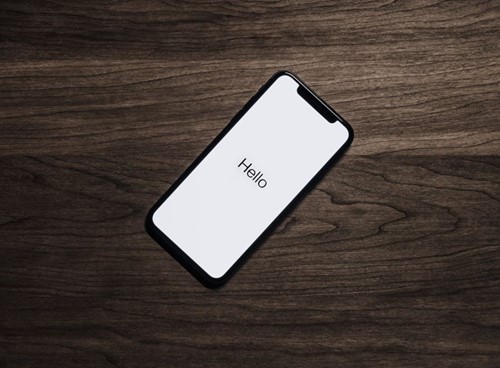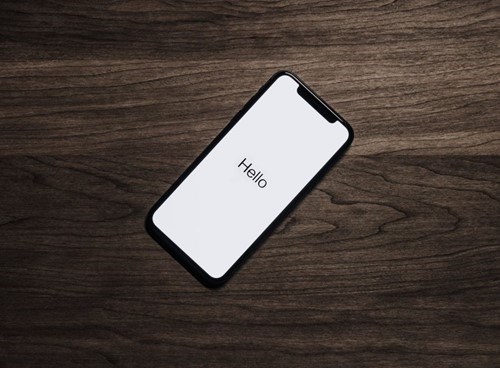
Top 7 Things to Do Before Starting Your Mobile App Development Project
As we have mentioned numerous times in our previous blog posts, it’s clear that business has been transitioning to a mobile-first world. Thousands or even millions of businesses and individuals with a varied range of resources, strategies, and ideas have successfully built their mobile application attracting millions of users across the globe.
Whether you are an individual who have an incredible idea looking to build an app or a business (e.g. start-ups, SME, enterprise etc.) that is expanding and in need of an app to cater to mobile users, you will need to do thorough research and planning before getting your developers started and write the first line of code.
Many people think that to have a successful app, all you need is a good idea and app developer (or team of app developers) who can transform your ideas to a real life app, and you are all set. Unfortunately, that is not the case, the process building a mobile app from scratch is just as challenging as coming up with a great idea for your app. Executing the idea correctly will make your dream come to life while doing it the wrong way may drive even the best of ideas into the ground.
That being said, here are some key steps you definitely should take into consideration before starting to develop your app:
Clearly define your app requirements

Before going out hiring developers and get them to write those first lines of code for your app, it is necessary that you clearly identify the specific requirements of your project. In such situations, it is always better to prepare in advance.
Here are some important questions in which you need to correctly answer so that you can realize your project and its requirements:
#1 What are the purposes of your app?
First and foremost, you need to define the exact purpose of your app. How does it fit in with your overall business strategy? Whether you already have an existing business and need to create an app as the additional channel to reach out to more customers. Or, your app will be functioning as the official channel conducting business of your start-up/company?
If it is the former, you will need to ensure that the newly created app align with your company’s industry business as well as brand image, culture etc. And if it is the latter, your app will be the first engagement that customers have with your start-up/company.
Another key factor is determining the category of your app (entertainment, finance, social-media, e-commerce, games, messaging etc.), which in turn will help you correctly recognize the features and technologies your app needs, as well as the kind of mobile developers you should hire to develop them.
#2 Define app’s features
After clearly identifying your app requirement and determine the appropriate category, the next step is to define the features needed of your app.
For instance, if your app is relatively simple and only requires a certain number of basic features which can easily be run offline, it wouldn’t take a lot of time and resources to get your app developed. However, if your app development project is more complex (e.g. a large e-commerce store) and needs to incorporate complicated features such as user logins, payment information storage, shopping cart etc. it would take longer time to create and of course costing you more.
Correctly identifying your app’s features will help you determine the time needed to develop and how much it is going to cost you. This will help you to budget in advance, avoid overspending and allocate adequate financial resources for your project.
#3 Research your competitors
It is absolutely essential to research competitors in order to know if your app idea (and the final mobile app product itself) sharing any fundamentals ground with others. By doing so, you can gain a deep understanding of the functionalities of similar apps and get comprehensive idea of what worked and what didn’t. This will help you focus on doing better on the parts which your competitors didn’t and thus improve the chance of success for your app. In addition, this will also prevent you from unintentionally repeating other people’s work
#4 Hiring the right mobile app developers


As mentioned above, every mobile app development project has different scope and complexity which will result in different cost and resources required. A large portion of mobile app development cost is contributed toward developers’ salary. For a simple project of developing app with basic features, hiring a developer with an average amount of skills and experience would be sufficient. However, for large and complex projects requiring advanced technologies, you might need to hire a full team of experienced mobile developers as well as project managers and testers.
If the hiring process takes too long and/or too costly, you may want to consider the option of outsourcing to an offshore company who are readily available and can provide you with full service of mobile development.
#5 Hiring Vs. Outsourcing
Hiring an in-house team of mobile app developers will make it easier for you in the area of project management, communication and teamwork collaboration. However, outsourcing mobile app development project to offshore software companies will help you save costs, time and resources as well as providing additional benefits such as access to large and diverse pools of IT talents and newest technologies at a very reasonable costs. The only catch is, due to time-zone difference and geography distance, it can be a bit difficult to manage the project progress and effectively communicate to team of developers. You can read more about hiring vs outsourcing here.
#6 Choosing the Right Platform and Technologies
Choosing the right mobile platform and technology (e.g. Swift/Objective C for iOS and Java/Kotlin Android) to start with is really a key factor for all businesses. This is particularly important for small businesses or startups since many of them often don’t have enough budget or resources to get their app developed for more than one platform.
When it comes to App Store revenue, Apple is currently the market leader [1] bringing in more profits. On the other hand, Android phones dominates the smartphone market with 85.9% market share worldwide during first quarter of 2018[2], and consistently stay in the 70-80% range.
Depending upon your business requirement, iOS is the good option to start with if you are more concerned with apps revenue from purchase, and your target users are mostly from high-income demographics and developed countries. However, Android can also be a great choice if you need your app to target broad base of users and/or want to monetize the app by publishing your app for free and incorporate displaying ads within’ the app.
As for big enterprise with large financial resources and budget, it is always a good idea to get your mobile applications developed for both platforms (iOS and Android) reaching as many users as possible.
#7 Document your research
Once you have figured out what it is that your app needs, it is necessary to document all of your hard work. Doing so helps your team of mobile developers as well as other related personnel understand the exact requirements so that can work on to develop and stay on track during the entire process.
To start with, make sure that you have in minimum a project brief document, a mobile design specification document, and a technical specification document.
Conclusion:
Mobile app development is a long and complex process which takes time and requires extensive resources. There is no secret formula to guarantee 100% the success of your app. It is important that you incorporate research as well as careful planning when venturing out to develop your first mobile app and take your idea to the next level.
TP&P technology is a leading mobile app development company, and we provide best-in-class mobile app development service ensuring quality results at a very reasonable cost. Contact us today to know more about our mobile app development service.
References:
- https://techcrunch.com/2018/07/16/apples-app-store-revenue-nearly-double-that-of-google-play-in-first-half-of-2018/
- https://www.statista.com/statistics/266136/global-market-share-held-by-smartphone-operating-systems/



